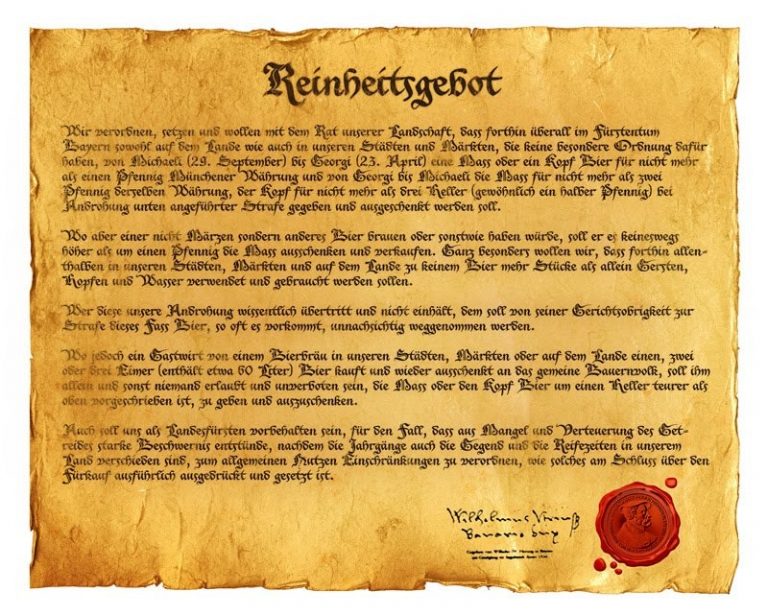No doubt you’ve all heard of (and possibly attended) Oktoberfest, the huge beer festival that takes place in Munich annually, as well as being replicated around the world – but have you heard of the Reinheitsgebot, Germany’s beer purity law? In this blog, we’ll look at what exactly this is, how it’s part of the German beer culture and the impact of it on the German craft beer scene.
German beer culture
The Reinheitsgebot which translates to ‘purity order’ was established to dictate exactly which ingredients were permitted for use in brewing beer. The most well known version was the one adopted by Bavaria in 1516, though the term Reinheitsgebot (gets a little easier to say with a couple of beers in you) was only coined in 1918 to describe the beer purity order. The law dictated that brewers could only use water, malt and hops to brew beer. The law was eventually later altered to include yeast. The beer purity order was initially brought in to protect food supplies – wheat and rye were essential, and therefore prioritised, for baking. As Germany united, the law changed to accommodate the other regions of the country, in particular the North where ale brewing was commonplace as opposed to the lager brewing in Bavaria.
Not only is the Reinheitsgebot rather complex as alterations have been made throughout the years, but it has also led to some controversy. Beer that was not brewed according to the Reinheitsgebot could not be sold under the label of ‘beer’ – however this didn’t go down well with foreign brewers trying to import beer into Germany and was swiftly deemed protectionist and thus illegal under EU trading law. How did German brewers react? Well they ensured that every bottle had the message that it was brewed according to the beer purity law – if you haven’t noticed before, next time check when you’re drinking from a German beer bottle!
Tradition vs craft beer?
So how does the Reinheitsgebot tie in with the craft beer boom? Safe to say that many of our Uiltje beers would struggle to qualify under the law! The beer law celebrated its 500th birthday back in 2016, and it did trigger somewhat of a debate. Some have argued that the beer purity law has made it harder for craft breweries to establish themselves, and that the Reinheitsgebot therefore protects the bigger breweries, with some going as far as saying that it should be scrapped all together. However it is also true that craft brewers can still produce many beer styles, for instance an IPA, in compliance with the law and some craft brewers have also simply skirted the law by naming their beers under a different label. It’s also interesting that German beer exports have seen a boost as other countries are willing to pay more for beer that has been brewed according to the Reinheitsegebot, as it’s seen as a premium product. Call me sentimental, but I can’t help but feel that at a time when everyone is so keen to brew all sorts of weird and wonderfully wacky beers, it may not necessarily be such a bad thing to have something as traditional as the Reinheitsgebot in the brewing scene. Sure it doesn’t guarantee that a beer is well brewed, however, it’s the fact that brewers proudly adhere to the rules as well as the consumers who reinforce the tradition by buying and drinking this beer.
